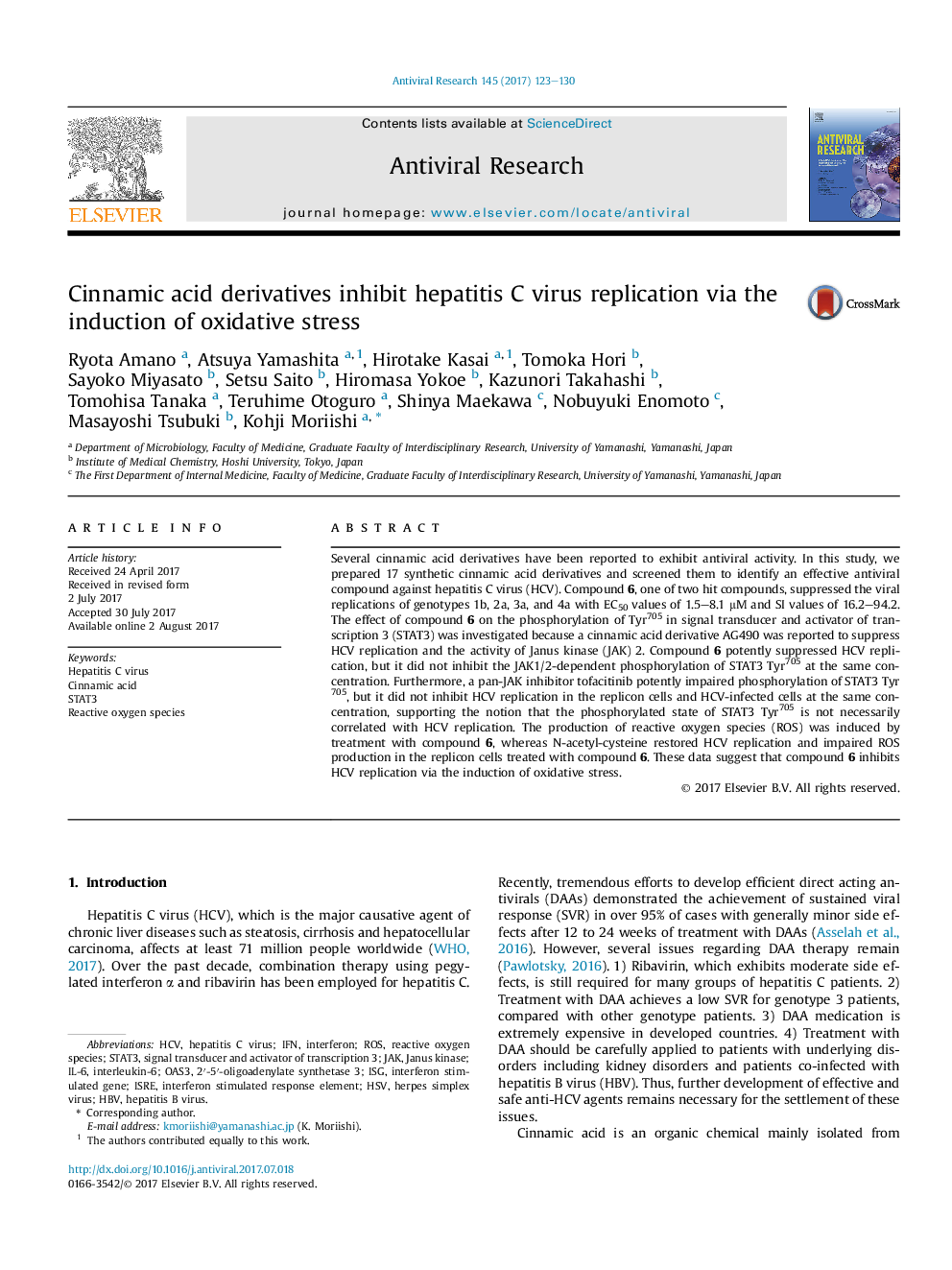| کد مقاله | کد نشریه | سال انتشار | مقاله انگلیسی | نسخه تمام متن |
|---|---|---|---|---|
| 5551655 | 1557798 | 2017 | 8 صفحه PDF | دانلود رایگان |

- Cinnamic acid derivatives were screened using HCV-replicon cells for the identification of a novel anti-HCV agent.
- A cinnamic acid derivative, compound 6, inhibited the viral replication of genotypes 1b, 2a, 3a or 4a.
- The antiviral activity of compound 6 was correlated with elevated levels of ROS.
- The antiviral activity of compound 6 was not associated with STAT3-Tyr705 phosphorylation or IFN signaling.
Several cinnamic acid derivatives have been reported to exhibit antiviral activity. In this study, we prepared 17 synthetic cinnamic acid derivatives and screened them to identify an effective antiviral compound against hepatitis C virus (HCV). Compound 6, one of two hit compounds, suppressed the viral replications of genotypes 1b, 2a, 3a, and 4a with EC50 values of 1.5-8.1 μM and SI values of 16.2-94.2. The effect of compound 6 on the phosphorylation of Tyr705 in signal transducer and activator of transcription 3 (STAT3) was investigated because a cinnamic acid derivative AG490 was reported to suppress HCV replication and the activity of Janus kinase (JAK) 2. Compound 6 potently suppressed HCV replication, but it did not inhibit the JAK1/2-dependent phosphorylation of STAT3 Tyr705 at the same concentration. Furthermore, a pan-JAK inhibitor tofacitinib potently impaired phosphorylation of STAT3 Tyr 705, but it did not inhibit HCV replication in the replicon cells and HCV-infected cells at the same concentration, supporting the notion that the phosphorylated state of STAT3 Tyr705 is not necessarily correlated with HCV replication. The production of reactive oxygen species (ROS) was induced by treatment with compound 6, whereas N-acetyl-cysteine restored HCV replication and impaired ROS production in the replicon cells treated with compound 6. These data suggest that compound 6 inhibits HCV replication via the induction of oxidative stress.
Journal: Antiviral Research - Volume 145, September 2017, Pages 123-130